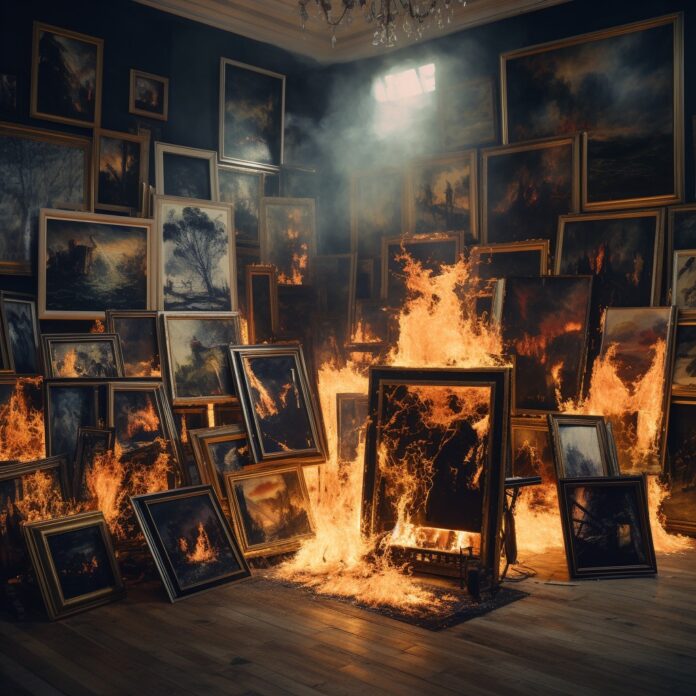Paintings Destroyed in Fire? What to do before it’s too late.
I rarely comment on current events, but like you, I’m devastated to hear of the tragedy in Maui, one of the biggest tragedies in our country’s history. And like you, I’m feeling helpless, wishing there was more I could do to help. We’re working with a few art initiatives to help raise money, but somehow it does not seem sufficient.
The Maui fires, in addition to all the damage we know of so far, have resulted in hundreds of lost paintings at artist studios, collector homes, and galleries.
My dad trained us to understand that if you have to think under pressure and don’t already have a plan, things won’t go as well in the heat of an emergency, or even drama and emotion. But if you try to anticipate situations, perhaps you can recover, or reduce the negative impact. That said, no one in Maui could have anticipated what happened last week.
For many of us who are not in the midst of tragedy, now is the time to take action to make sure you have the best possible plan in case something does happen.
Art Studio Considerations
If you had a five-minute notice, what would you grab? Look around and decide what’s absolutely irreplaceable, whether because it’s valuable or sentimental.
The first thing crossing my mind isn’t the stuff we can replace, it’s the stuff we can’t. Things with emotional meaning — in my case, an extensive art collection, a collection of portraits other artists have done of me, and piles of paintings that are my life’s work. What would I do if it was all lost?
I created a list of everything that had meaning, then prioritized that list, and handed out instructions. If there is a fire, if there is time, get these items out to safety first. If there is still more time, add these things that are on the list.
What do you need to do to prepare to leave on a moment’s notice?
What will you regret not having, or not having created a digital copy of?
Most important, of course, is your life and your family. Don’t go into a burning fire and risk your life to save an old photo. It’s not worth the risk. But having a plan in advance is a great idea.
Art Insurance and Documentation
Contact your insurance agency and ask what you need for proper coverage. They may require specific documentation of your collection or your body of work.
My friends in the Malibu fire had five minutes’ notice. They lost everything. That’s the most likely scenario. In that case, you would at least want records and proof such as digital photos and things stored online or on a server off-site. I have most of my paintings and collection documented, but the list has not been updated in five years. I would at least want to be able to remember those things or have evidence for insurance. (Artwork Archive is a great resource for helping you keep track of your art inventory.)
In your art inventory, include high-resolution photos of all of your paintings and document the size along with any other details you have available.
What if your paintings are lost in a gallery fire?
When you agree to sell your paintings through a gallery, you should have a written agreement that includes things like liability issues and insurance. Keep a digital copy of this online in case it’s ever needed.
Your agreement should also include answers to the following questions:
Will your insurance cover the loss of your art if the gallery has a fire or theft, or is that the responsibility of the gallery?
Do you need an insurance rider on your work that is hanging in a gallery?
What if the gallery is unable to pay you for the paintings they’ve sold?
One More Note
The horrors of Maui are beyond awful. Families need help, and if you have something extra, this is the time to step up and find a charity that will help.
Related Article: How to Inventory Your Art Collection








